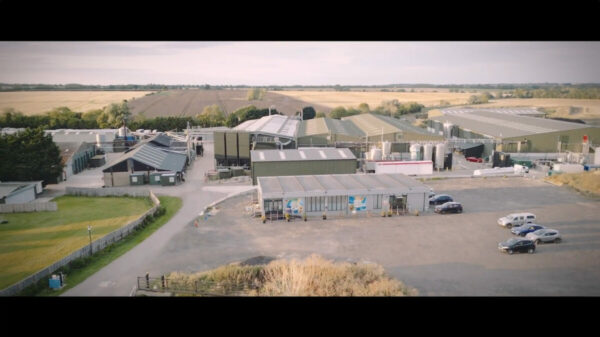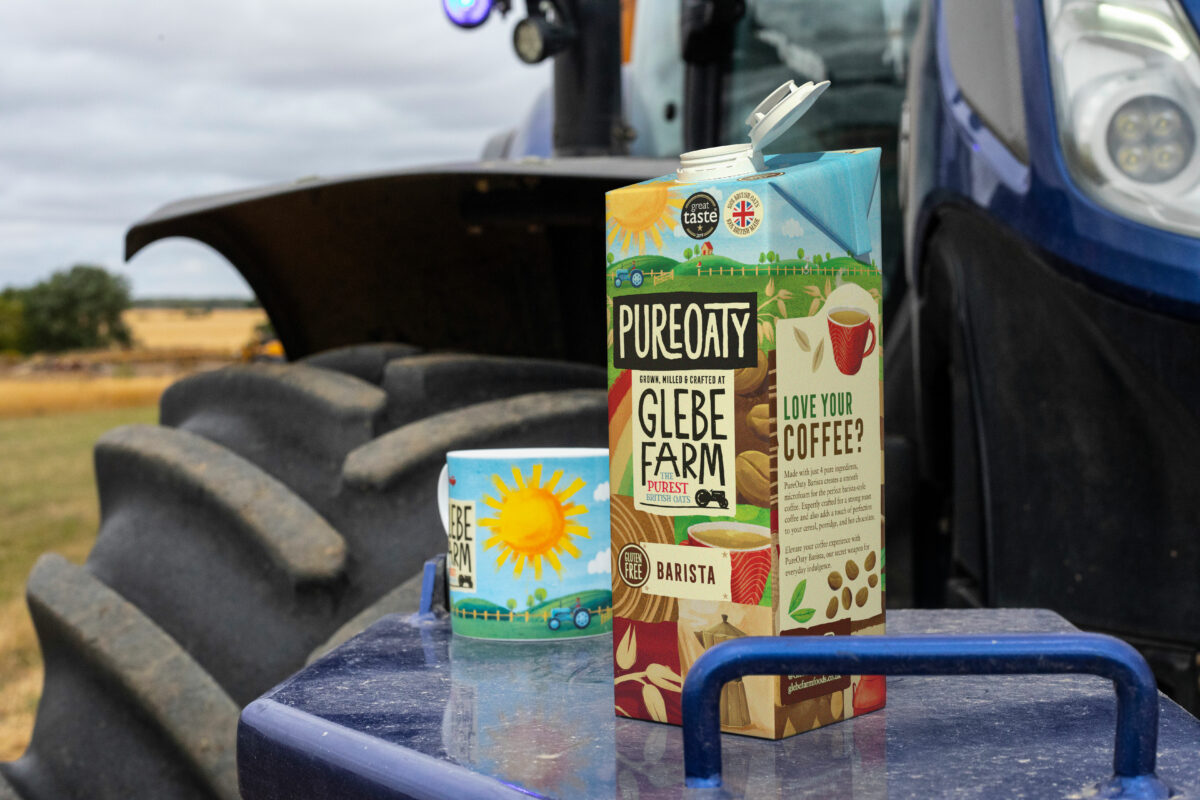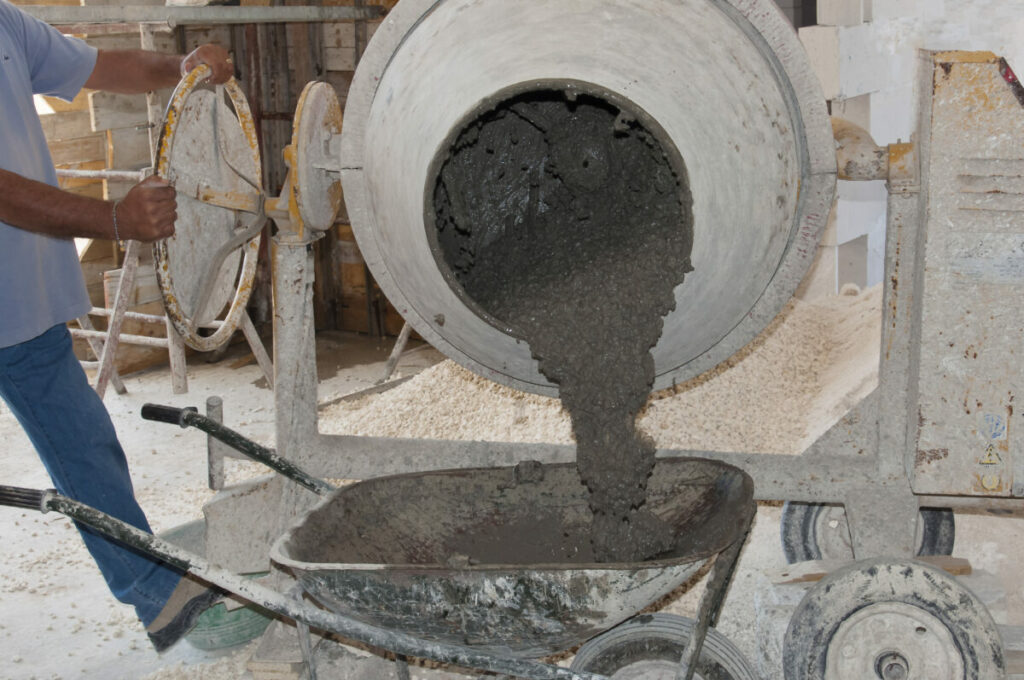As milk drinkers increasingly turn their backs on dairy, plant-based alternatives such as soy, almond, oat and coconut are slowly but surely taking over the supermarket shelves.
Generally considered to be healthier and with a much smaller environmental footprint than ‘traditional’ dairy milk, nearly half (48%) of UK consumers currently choose at least one non-dairy milk alternative.
While it’s true that switching to a plant-based milk has major environmental benefits (producing them uses far less water and land and releases far fewer carbon emissions than dairy milk), each comes with its own pros and cons. For example, almond milk is notorious for its impact on farmland compared to other crops, while soy milk is widely criticised for contributing to deforestation and biodiversity loss.
Oat milk, however, sits at the other end of the spectrum. Its production uses comparatively little land or water, produces low carbon emissions and is generally considered to be the most environmentally-friendly of the milk alternatives.
So far, so good – but even then, not all oat milks are created equally, with Cambridgeshire-based Glebe Farm producing and selling oat milk with the lowest CO2 emissions in the UK market. Founder Phillip Rayner reveals how the business is looking closer to home as it takes sustainable farming to the next level.
Subscribe to Sustainability Beat for free
Sign up here to get the latest sustainability news sent straight to your inbox everyday
Local oats from local farmers
“We started Glebe Farm because we wanted to grow oats locally, in Britain,” Rayner begins, explaining that any weighty international transport emissions are immediately taken out of the equation.
“We grow and mill our oats locally so we can keep food miles to an absolute minimum. One litre of Glebe Farm ‘PureOaty’ equates to around 290g of carbon dioxide per litre, but we’ve eliminated around 35g through bringing everything on-site.”
The Glebe Farm site includes every aspect of the production process, from farming, milling, manufacturing, testing and distribution.
As the company has no need to source oats from third-party sources, it has complete control of the supply chain – in fact, all its farmers are within a 50-mile radius and Rayner knows them all personally.
He explains that being so close to Glebe Farm suppliers is especially important for a gluten-free brand, pointing out that because all its products are allergen-free, he needs to know exactly what the products are and where they come from.
“A third-party transaction separates the customer from the supplier – and generally, businesses can’t visit their suppliers. You can’t visit so you don’t quite know what they’re doing,” he adds.
“But we don’t have that type of supply chain.”
What happens at Glebe Farm stays at Glebe Farm
In addition to making sure Glebe Farm only works with local farmers, Rayner has also invested into bringing the majority of processes on-site to help keep emissions low and vastly reduce food miles.
Earlier this year, Glebe Farm introduced a new cutting-edge packaging plant, which included a Tetra Pak filling line. It can now say PureOaty is the only British oat drink fully produced on a single UK site, with just 300 metres between the oat milling and packaging processes.
“Approximately 70% of our emissions at Glebe for our PureOaty drink used to come from transport, ultra-high heat treatment (UHT) processing (sterility) and packaging,” says Rayner.
“Since the introduction of our new Tetra plant, we have eliminated over 10% of our total transport emissions which were previously associated with truck movements offsite for processing, packing and warehousing.”
There have been other benefits also; the GHG emissions from UHT processing have been reduced, with the farm using its existing biomass steam (created from oat husks) to power the plant.
Renewable energy
In keeping with its home-grown focus, a 220kW bank of solar panels and biomass generators produce all the power needed for the complete Glebe Farm production facility.
“If you’re creating waste, you should be dealing with it as well and we do that by using it to fuel our farm” says Rayner, explaining that the farm is able to produce an additional 2 megawatts of power with oat by-products.
Oat husks are inedible to humans, but are ideal for being concerted into generator fuel.
“Ideally, we’ll use any of our oat by-products for human food. If that’s not possible then they will be turned in animal feed – and if that’s no good either then they’ll be used to power up our main inputs which we can then use for heating,” Rayner adds.
Glebe Farm also has plans to build an additional biomass boiler and up to 600kW more solar panels to support its growing steam and electricity requirements – but of course all this comes at a cost.
“It costs a huge amount of time and money to do sustainability properly,” shares Rayner.
“We have to start planning sustainable business plans now and think far in advance. We currently have six-to-seven-year timeframes on everything. But, as food growers and manufacturers, we recognise our responsibility to minimise the environmental impact of our operations,” he says.
“What we do at Glebe Farm is already unique, but we’re not perfect. There will always be ways we can find to improve how we work, boost our eco-credentials and reduce our carbon footprint even more – and that’s exactly what we’re going to do.”
















